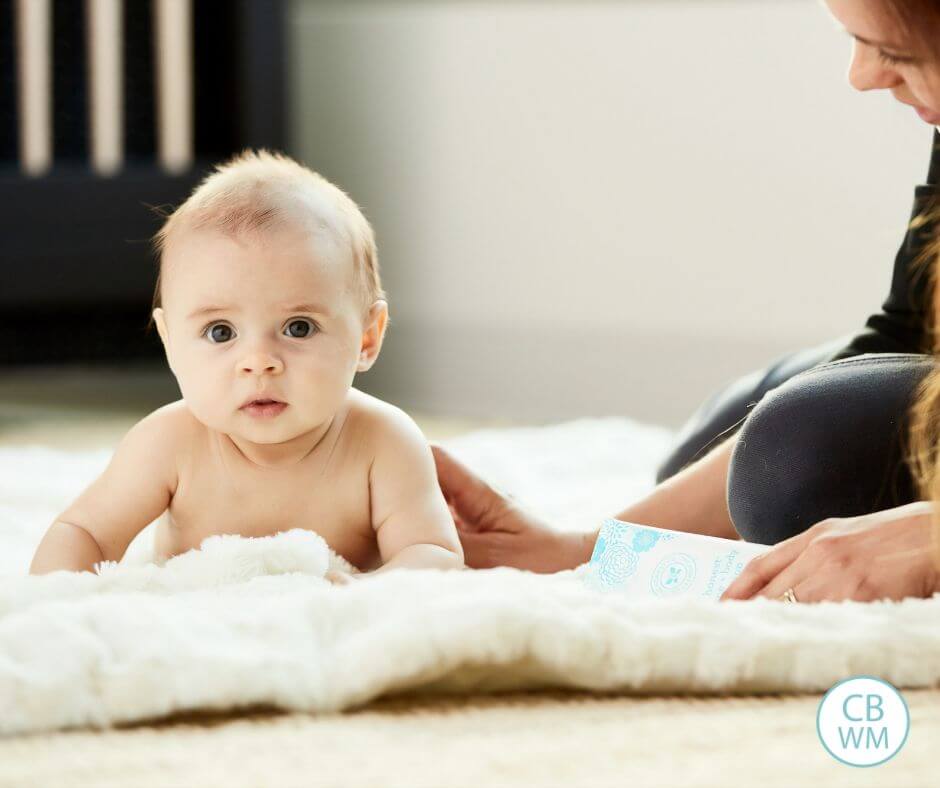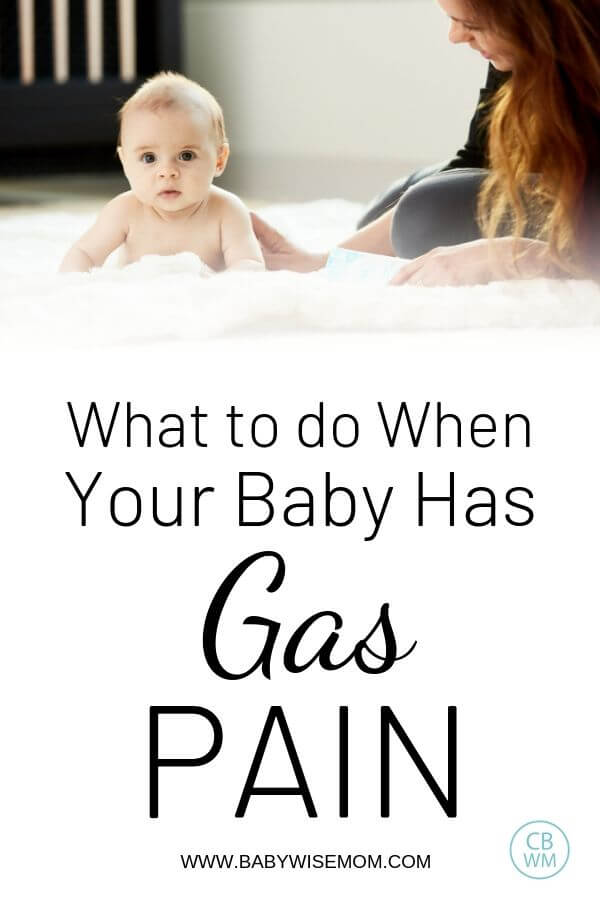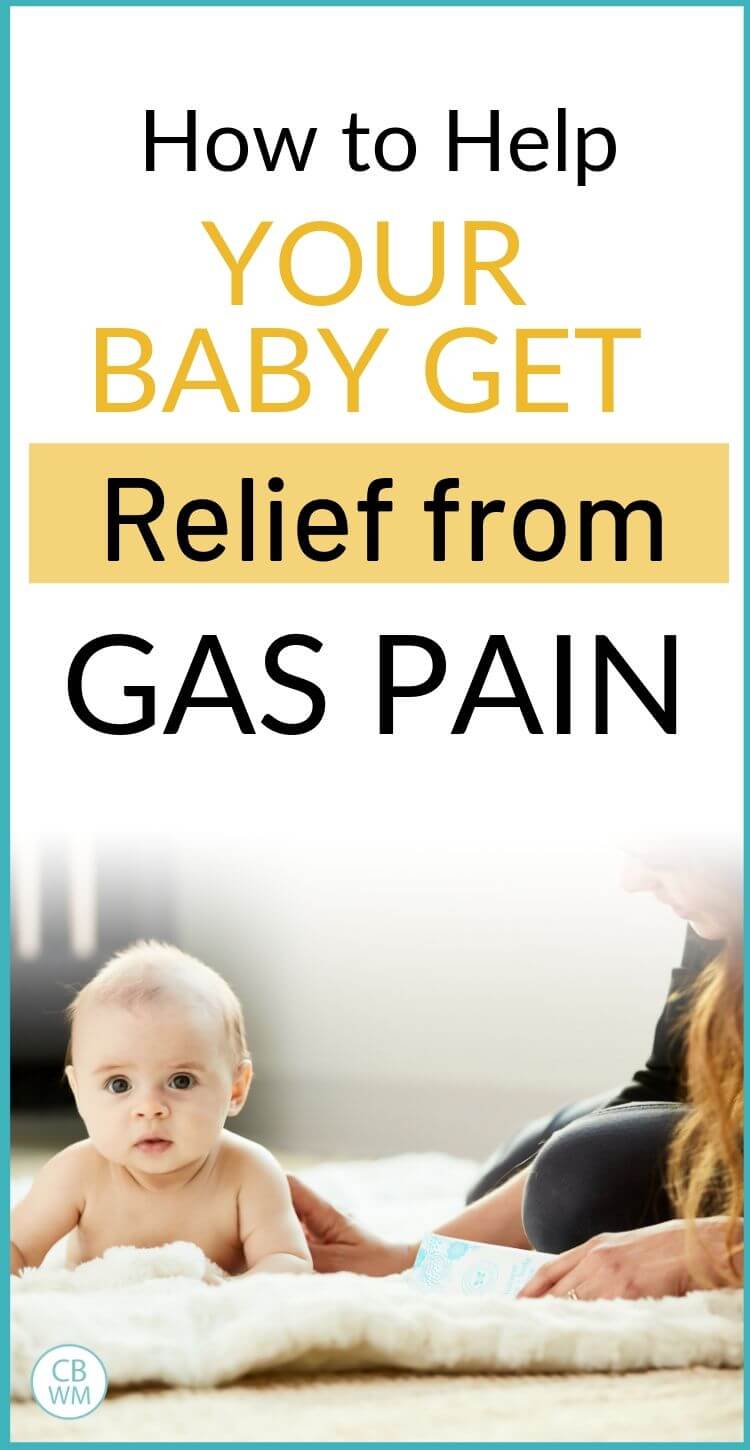What to do if your baby has gas. A baby with gas pain will cry in pain and not sleep well. Use these tips to identify gas and know how to help baby.
When Brayden was a baby, he was upset so often. I was a first time mom and didn’t know if it was normal or not for a baby to cry that often. One day, my sister came to visit with a friend of hers who had a baby 9 months older than Brayden.
She immediately commented on Brayden having gas and that her daughter had gas like that when she was a newborn, also. She recommended some gas drops. We went out and bought some. It was a life-changer for him!
If you are a parent, you should know all about baby gas, what it looks like, and how to treat it.
In The Baby Whisperer Solves All Your Problems, Tracy Hogg describes gas symptoms and gives ideas on how to treat it. Here are good points from the book as well as some of my own (pages 110-111).
Post Contents
WHAT IS GAS in BABIES?
Gas is air. It will come out either through burping or passing gas. For some babies, gas can be very painful, just like it can for some adults.
HOW DO YOU KNOW IF GAS IS A PROBLEM?
Look for these signs:
- Baby brings legs up to his chest.
- Baby scrunches up his face.
- High pitch to his crying. This was the biggest sign to us that McKenna had gas. It was a shrill cry of pain.
- Baby will look like he is panting.
- Baby might roll his eyes.
- I have also noticed that baby will squirm around a lot.
HOW DO YOU TREAT GAS?
If your baby has gas, try these solutions to help baby get rid of the gas pains.
Burp. When burping, gently rub upward on his back on the left side using the heel of your palm.
Burp. Try having his arms over your shoulder, dangling down. Then have his feet straight down. If baby is still in the curled up newborn stage, you might have to straighten his legs for him.
Bicycle. Lay him on his back and bicycle his legs.
Pat. Hold him against you and pat his bottom.
Pressure. Lay him on your forearm, face down, and put gentle pressure on his tummy with your palm.
Burp. I know, how many times can burp be mentioned? I am sure to burp my babies efficiently and often. I give them one final burp right before I put her down for a nap. I remember McKenna always burped the easiest while she was swaddled.
Towle Method. There is a colic/gas management method for relieving gas. The description is long. Click here to access the document for free.
Gas Drops. Simethicone drops can help. I have found them to help immensely. Brayden, McKenna, and Brinley had gas, and these drops were a lifesaver. I used the drops after every meal.
Here is a definition from wikipedia.org: “Simethicone is an anti-foaming agent that decreases the surface tension of gas bubbles, causing them to combine into larger bubbles in the stomach that can be passed more easily by burping. Simethicone does not reduce the quantity of gas in the digestive tract, it only increases the rate at which it exits the body, but does not prevent gas formation in the intestine. However, simethicone can relieve pain caused by gas in the intestines by decreasing foaming which then allows for passing of flatus. Simethicone is not absorbed by the body into the bloodstream, and is therefore considered relatively safe.”
My belief, based on observing my kids, is that simethicone drops work well over time. I think they are best applied consistently and help prevent gas pains. The effect of the drops is cumulative, so they are most effective when used consistently. If baby has pains on occasion, you can give them on occasion, but if not, you might want to stick to consistency.
I use the store brand from Walmart (Equate Gas Drops) and find they work very well, and they are a lot less expensive than the name brand (Mylicon Drops).
Gripe Water. Gripe water is great for alleviating pain immediately. We used gripe water with McKenna and Brinley.
Here is the definition from Wikipedia.org: “Gripe Water is a home remedy for infants with colic, gastrointestinal discomfort, teething pain, reflux, and other stomach ailments. Its ingredients vary, and may include alcohol, bicarbonate, ginger, dill, fennel and chamomile. It is typically given to an infant with a dropper in liquid form, and adults may also take gripe water for soothing intestinal pains, gas or other stomach ailments.”
Notice that some contain alcohol, but not all do. If you don’t want your baby having alcohol, be sure to read ingredients before purchasing it. I have been really happy with the Baby Bliss gripe water. It works really well and has no alcohol in it. I don’t even administer a full dose.
Read: How To Help a Baby With Gas Pain
Conclusion
If your baby has gas, do what you can to alleviate the pain. You will have a different, happier baby if you do!




Did you give the mylicon drops right after each meal? Or at night?
My DD is 7 months old. I wish I had known about the gripe water. I did use the simethicone drops with success though. Now that she is 7 months old, would it be worth it to still go out and get gripe water? Is she past the "gassy age"? She does still get hiccups on certain days. Yesterday, for example, she got hiccups before every nap, and before bed! Wierd!
Mrs. Haid, I give it after each meal.
Amy (Redheads), I am undecided. McKenna is running low on her gripe water and I am not sure if I will buy more or not. She gets hiccups all the time, and I love having it to get rid of them, especially when she gets them right before a nap. A 7 month old isn't as gassy as a newborm, in most instances.So I am unsure what to say. I have been debating with myself for a while now 🙂
Wondering your thoughts on this. My 11 week old occasionally wakes early with gas. Usually putting her legs to her belly helps alleviate that, and she will stop crying and be her smiley self. Should I try to get her to go back to sleep at that point? Today she woke half hour early, we were able to get the gas out (and a diaper change) within 10 minutes – so only 20 minutes until her next feeding time. Should I have tried to get her to go back to sleep? If so, how? Or, should I have fed her early? Thank you so much, any advice you can give would be helpful!!
Gwyn, at that point, I would probably just get her up. But I might hold her and rock her to see if she would doze until normal feeding time.
My almost 3 week old is waking consistently every 3 hours at night after I put him to bed at 7:30pm. I would usually do a DF anyway around 10 so I understand that feeding. But the ones everytime after just result in him only nursing a few minutes, falling asleep, and then promptly spitting up. When he wakes he is grunting squirming and fussy. Then the third time he wakes it is always around 4-5am and he just farts for an hour and fusses and squirms. He will fall asleep in my arms but the moment I put him back in bed he is back at it again. I cannot figure out this and how to help him settle. I can't even determine if he really needs to eat because he just spits up and refuses after the first 5 min. These early morning issues are wearing me out and I would love to just get a consistent 4-5 hour stretch in the nighttime. Our daytime routine is perfection so I am not sure why the difference in the MOTN
I have the exact issue as above and would love ideas.
My 6 week old seems to have a lot more gas issues at night. He generally seems to be fine during the day so we let him CIO and he usually goes to sleep after 5-10 min. He is okay at bedtime (around 7:30) and cries for a few minutes then goes to sleep but after the DF and for the rest of the night he is grunty and seems in pain so we allow him to sleep in a bouncy seat which seems to provide relief. Should we continue to wait to CIO at night due to gas? Or are we creating mixed signals with day and night being different. We are still able to usually avoid rocking him to sleep- he usually falls asleep either with the vibration of the bouncy seat or a paci but it takes a while.
It could be witching hour rather than gas that is the isse. See my post on witching hour for more on that. If you do think it is gas and not witching hour, some gas drops and/or gripe water throughout the day will help.
How long did you do the gas drops every day for? They seem to help my little one but I am reluctant to have him on them for weeks on end.
I did it for months! For my oldest, who is now 17, I did it until he was a year old.